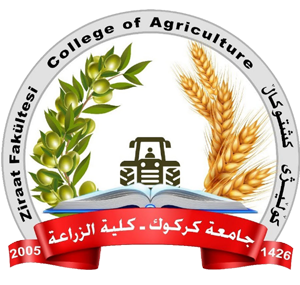The College of Agriculture, University of Kirkuk, discussed a master’s thesis on the interactive effects of dripper type, water deficit irrigation, and water salinity on the yield and quality of water use efficiency of red cabbage in the semi-arid region of Kirkuk, by the student Sazan Helmat Sabah, and under the supervision of Professor Dr. Hussein Zahir Taher, and Professor Dr. Tariq Hama Karim Taher.
The study aimed to “evaluate the combined effect of lack of irrigation and water salinity on growth, yield, yield component, quality, and water productivity of red cabbage in light of the semi-arid climate of Kirkuk Governorate, modify the harmful effects of salinity by using high-level irrigation water, and determine the sensitivity of red cabbage to lack of irrigation using water.” Fresh and salty to choose the best drip type that provides the highest performance.
The study concluded, “Plant height was significantly affected by the interaction between deficit level, water quality, and type of dripper, and the GR dripper type outperformed the Turbo dripper type according to the evaluation criteria, as there was a steady increase in water use efficiency with an increase in the level of deficit irrigation for both fresh and salt water.”




